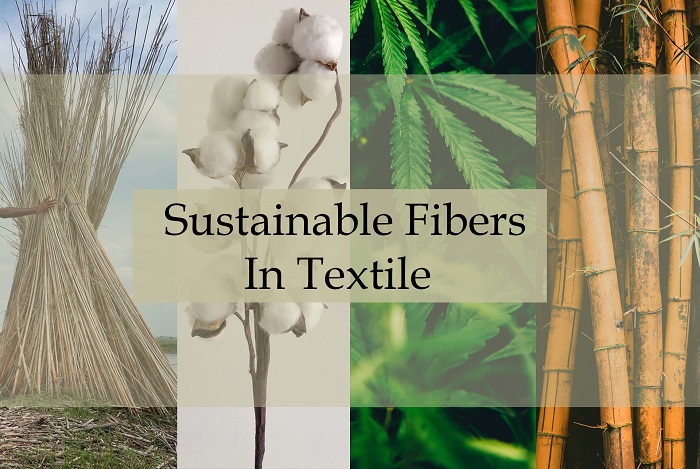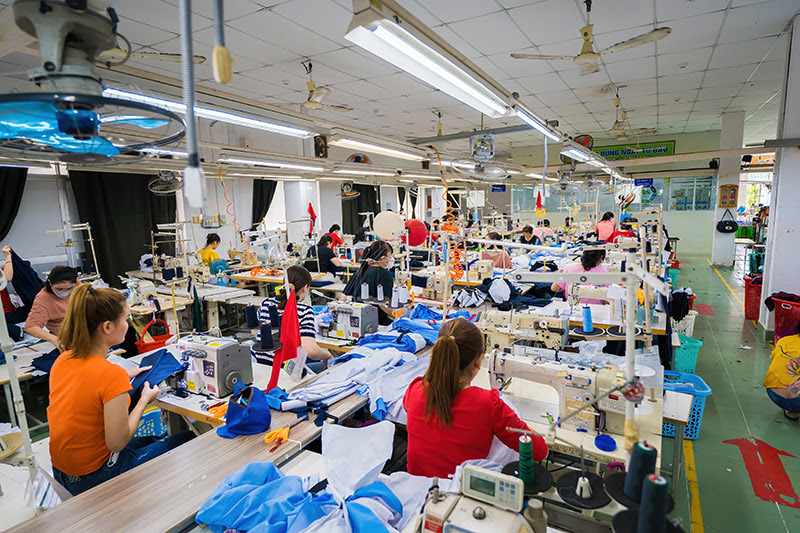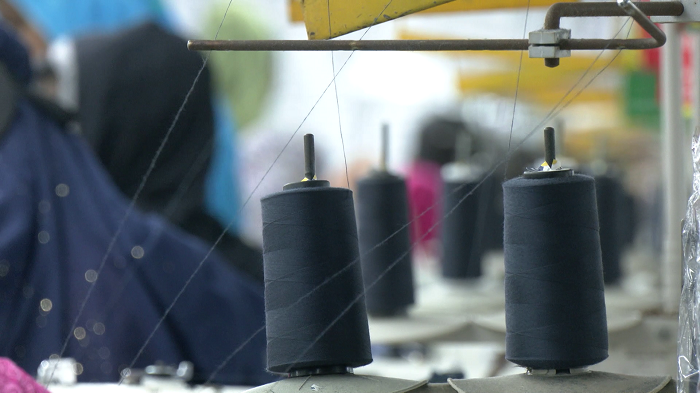Cotton is expected to continue losing market share this season. Cotton prices are substantially higher than polyester prices in China. And as per Cotton Advisory Committee (ICAC), the Cotlook A Index averaged 93 cents per pound in August, while polyester in China averaged 76 cents per pound. Despite the loss of market share, world cotton consumption is rising in absolute terms and is estimated at 23.7 million tons in 2013-14. However, world cotton production will be down 3.5 per cent from last season. US production alone is likely to fall by 25 per cent. Shipments from all major exporters are expected to fall, except from the CFA or franc zone in Africa, where producers are increasing production in 2013-14 and thus exports in response to higher cotton prices.
World trade in cotton is forecasted to decline by 1 million tons to less than 9 million, with this decline almost entirely accounted for by reduced imports into China. Falling mill use of cotton in China due to its cotton procurement policy - which is keeping cotton prices at levels above manmade fibers - is encouraging a significant shift in mill use to other countries.
American & Efird (A&E) one of world's leading manufacturers of sewing thread, embroidery thread and technical textiles for worldwide industrial markets, announced the release of its transparent 2012-2013 Sustainability Report. The report highlights the company's leadership and steadfast commitment to environmental sustainability and social responsibility.
"We're gratified that our newest sustainability report shows improved cumulative results from the impact of our efforts and investments," said John Eapen, Vice President Environmental, Health & Safety/Sustainability at American & Efird. "We remain especially proud of our zero liquid discharge plant in Perundari, India, the first in the thread industry, as well as our 50 per cent recycle/reuse facility in Dongguan, China. The water conserved by our facilities in India and China is equivalent to the daily water usage of nearly 7 million people within these countries."
A&E follows the American Apparel and Footwear Association (AAFA) standards for restricted substances. The AAFA's Restricted Substances List (RSL) provides guidelines for the use of chemicals and substances that are restricted or banned in the production of home textile, apparel and footwear products. The RSL is revised biannually and reflects international safety and environmental standards and restrictions.
One of the first thread manufacturers to adopt a global standard of measurement, A&E uses critical data to scrutinize its engineering protocols, equipment specifications and emerging technology, with the express purpose of upgrading systems and continuing its trend of reducing greenhouse gas emissions.
The company achieved its goal of 20 per cent reduction of greenhouse gas emissions from 2006. Through the use of engineering protocols and equipment specification and the adoption of emerging technologies and system upgrades, A&E reduced both power consumption and fuel-burning activities.
Ahmed Elbosaty, President, The International Cotton Association (ICA) has extended an invitation to Pakistan’s spinning sector to become ICA member to get benefits of international cotton trade via ICA. Elbosaty said that almost 80 per cent of global cotton trade is being done through ICA and APTMA members could get benefits and expertise of the ICA after becoming its member. In his first ever visit to Pakistan and APTMA, the ICA chief said that the association has changed its rules and regulations in order to allow spinners, weavers, retailers, etc, to become members so that the whole supply chain can benefit from ICA’s services and professional programs.
He mentioned that ICA’s arbitration is free of charge for members while non-member have to pay $15,000 as application fee for arbitration. He said that membership fee for individual (industry) is $2,000 and there would be no charges for services and training or becoming its arbitrator.
Yasin Siddik, Zonal Chairman, APTMA said that the ICA’s delegation’s visit to Pakistan would be helpful for Pakistan’s textile sector particularly spinning and such visits would bring the local and international stakeholders closer and improve mutual understandings. He said that by virtue of Pakistan’s status as fourth largest cotton producer and third largest cotton consumer, it should have at least two members from APTMA on ICA’s board of rules and regulations.
Turkey is looking to produce 2.38 million tons of cotton this season, which is an increase of 2.6 per cent compared to last year’s production. However, cotton production still falls short of the Turkish textile industry’s requirements. As per a statement by TZOB, chairman Shams Bayraktar said despite the increase in production of cotton compared to last year, it still falls short of the textile industry’s requirement in the country. In 2012, Turkey spent around $2.5 billion on imports of cotton and was the second largest importer of cotton in the world, after China. The expected cotton production for the current year still remains behind the production achieved in 2011. Cotton production decreased by 10.1 per cent to 2.32 million tons in 2012 compared to the production in 2011, which was 2.58 million tons.
During the cotton harvest period of 1995 to 2012, overall production of cotton saw an increase of 61.6 per cent, whereas production of ginned cotton increased by 56.4 per cent in the country. During the same period, cotton acreage fell from 7.56 million hectares to 4.9 million hectares, indicating a decline of 35.4 per cent.
Cotton is a strategic product for Turkey, as millions of temporary workers, employers, dealers, and transport employees in the country are dependent on cotton to make a living.
The International Textile Manufacturers Federation (ITMF) annual conference 2013 will be held from September 8 to 10, 2013, in Austria. The conference, with the theme ‘Rebalancing the Power between Manufacturing and Retail’, would focus on the changing relationship between producers and retailers in the difficult business environment faced by the global textile supply chain. It would include sessions on cotton and man-made fibers, e-commerce, Europe’s textile industry, the textile supply chain, technical textiles, non-wovens, the global textile machinery market and China’s textile industry.
The ITMF provides a forum for discussion on matters concerning textile companies. It allows textile trade associations to exchange information on matters affecting the textile industry, consistent with the trade regulation laws of the nations represented, and performs the functions of a liaison agent between textile industries and governments and intergovernmental organizations interested in the textile industry.
Representatives of several textile associations would be speaking at the conference. Some of them are: Terry Townsend, Executive Director, International Cotton Advisory Committee (US), Fritz Grobein, President, Bremen Cotton Exchange (Germany), Josue Gomes De Silva, President of ITMF (Brazil), Kai Hughes, MD, International Cotton Association (Germany) among others.
The Bangladesh Garment Manufacturers and Exporters Association (BGMEA) has proposed a minimum 50 per cent wage hike for garment workers. This decision has been arrived at considering inflation, price index, nutrition, transport and house rent.
Bangladesh had set up a panel to raise the minimum wage for garment workers following a factory collapse that claimed over 1,000 lives. The panel was made up of factory workers, factory owners and government representatives. In 2010, Bangladesh increased the minimum wage for garment workers by 80 per cent following worker protests. The first minimum wage board was constituted in 1994.
A revised minimum wage could help women working in harsh conditions who have few other places to go to. Garment workers have been agitating for better pay and working conditions in recent months since inflation has been high. These workers sew clothes that earn the country foreign currency, so they feel they deserve a better deal.
However, garment manufacturers are unhappy. They say that since a minimum wage was fixed as recently as 2010, it should be reviewed at a later date. They say they are suffering because of missed shipments and disrupted production due to strikes and that a minimum wage provision will hurt them.
www.bgmea.com.bd/
The apparel industry in Bangladesh needs to improve its image for guaranteeing the country's long-term prosperity. The collapse of Rana Plaza in Dhaka in April 2013 sent shockwaves through the textile and clothing industries. More than 1,100 lives were lost in the incident, and Bangladesh's reputation as a reliable low- cost location for clothing suffered a severe blow in the eyes of consumers and major brands.
Some western buyers have cancelled orders in the aftermath of the Rana Plaza collapse and placed them elsewhere. Moreover, a number of Bangladeshi factories have been blacklisted. There is a danger retailers and consumers will view cheap clothing from Bangladesh as coming at too high a cost in human terms, and that they will prefer other countries where costs are low but similar tragedies have not occurred -- such as Cambodia and Vietnam.
Sales in the US import market could be negatively affected following a decision by the US government to suspend Bangladesh's preferential duty treatment under the Generalised System of Preferences (GSP) scheme, and Bangladesh's preferential access to the EU could also be revoked if the government does not take necessary steps to significantly improve building safety standards and overall labor conditions in the country.
The government and major brands need to work together with suppliers to change the apparel industry into one in which there are safe factories, decent wages and respect for workers' rights. However, gains will only be sustainable if the added labor costs are absorbed by buyers as well as manufacturers.
Mexico wants China to do something about the subsidies China grants its textiles and garment manufacturing sector. In October 2012, Mexico had filed a complaint with the World Trade Organization, blaming the Chinese government for subsidizing its textile and garment manufacturing sector, resulting in unfair competition for the Mexican textile and clothing industry.
Meanwhile Mexico and China have agreed to increase trade and investment flows between the two countries and to support business missions to explore new areas of economic and commercial cooperation. Mexico feels that while it has dropped tariffs on a host of Chinese goods in recent years, the Chinese market remains for most purposes closed to Mexican goods. So Mexico wants to take a more aggressive stance with China. It hopes to gain greater access to Chinese markets, especially selling foodstuffs, manufactured goods, minerals and energy.
Mexico alleges Chinese manufacturers get export credits, have strong government support and enjoy the benefits of other unfair trade practices. The country wants a level playing field. China has a massive trade surplus with Mexico. Last year, it exported $57 billion worth of goods to Mexico, while Mexico only exported $6 billion to China.
Zimmer Austria has pioneered many global innovations and milestones in the textile printing industry for over more than a century. The company has established a strong presence across the globe as a highly reliable printing machinery manufacturer. The company has been working in the Indian market for many decades. Since 2012, it has had a tie-up with ATE for marketing and sale of digital printing machines in India. Zimmer sees a lot of potential in India for carpet printing machines. Thanks to the high duty structure for import of carpets, and also the increasing demand from hotels, offices and the home segment, the domestic demand for carpets is bound to grow exponentially.
Another area of opportunity is terry towels. India is one of the largest manufacturers and exporters of terry towels and Zimmer Austria has also developed a digital printing machine for terry towels. Zimmer Austria is actively working on reducing printing and ink costs, which are the most critical component of operational costs. It is currently testing inks made in India for the Indian market, similarly inks from China, Korea and Japan for their respective markets.
A world leader in printing technology, Zimmer Austria manufactures a complete range of machinery for textile and carpet finishing covering digital printing systems, flat screen and rotary screen printing, coating, steaming, washing, and drying at its plants in Austria.
www.zimmer-austria.com/en/company/about-us/index.html
The wool market in Australia continued with its auction this week and received excellent results. Amongst increasingly negative sentiment flowing from several Chinese suppliers, the market showed great resilience, albeit under a very small volume flowing through the system. As the sale progressed, all type and micron categories showed a confident resurgence and by the close of selling had added a few cents to their previous quotes. The skirting and carding markets continued to be at very attractive levels, with only the merino fleece sector looking for a spike upwards.
The small offering of spinners and best top makers at the Superfine (finer than 18.5micron) end of the selection continue to extract reasonable premiums out of the market, with some Italian, Indian and Chinese competition forcing a 50 to 60 cent price advantage over the micron indicator levels.
Crossbred and comeback types from 25 to 32 micron met with good demand and prices gained approximately 1 per cent for the series. After initial signs of a weakening in appetite for this sector, buyers rallied late in the week, with some new sales for prompt shipment keeping the interest and levels alive.
- 1
- 2
- 3
- 4
- 5
- 6
- 7
- 8
- 9
- 10
Peeling Back the Fabric: Glimpact study gives true ecological threads of apparel…
A groundbreaking new study by Glimpact, has pulled back the curtain on the often-obscured environmental footprint of the apparel industry,... Read more
Embracing Innovation: The rise of sustainable fibers in a changing world
The quest for sustainable and high-performance alternatives to traditional resources has sparked a revolution in fiber use. According to the... Read more
Garment Tech Istanbul to showcase cutting-edge apparel technology and drive glob…
A global hub for apparel innovation Istanbul will welcome leading global players in garment, embroidery, and textile machinery from June 25... Read more
From discarded threads to global trends, Panipat's recycled yarn revolution
Panipat, a city synonymous with textiles, is rapidly evolving from a traditional weaving hub to a powerhouse of sustainable yarn... Read more
Bangladesh emerges strong in global RMG exports as China's loses ground
Bangladesh is rapidly strengthening its position as a major player in the global apparel export market, capitalizing on a shift... Read more
Blossom Premiere Vision returns in June to support luxury fashion's shifting nee…
As the global luxury goods market grapples with a prolonged slowdown, an industry once resilient to crises is now undergoing... Read more
Monforts technologies power sustainability showcase at Kingpins Amsterdam
Denim mills using Monforts systems dominate eco-focused fabric displays At the recent Kingpins Amsterdam exhibition held on April 16-17 at the... Read more
Bangladesh RMG exports navigate new skies amid cost concerns post India's trans-…
Bangladesh's RMG export is adapting to India's revocation of trans-shipment services, marked by maiden freighter flight carrying 60 metric tons... Read more
A stitch in time, fashion's 1% solution to a carbon crisis
The fashion industry, built on trends and textiles, is facing a stark reality: its environmental footprint is unsustainable. Hidden deep... Read more
Threadbare Foundations: Bangladesh’s RMG boom hangs by Indian yarns
Bangladesh’s ready-made garment (RMG) industry is a global juggernaut. Second only to China in apparel exports, the sector is the... Read more












